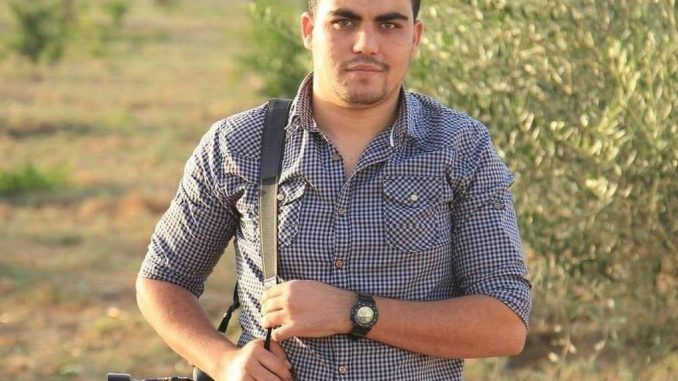
Palestininan Journalist Yaaqoub Albarsh, executive director of Namaa Radio, died on Sunday after sustaining injuries from an Israeli airstrike on his home in northern Gaza, according to the Beirut-based press freedom group SKeyes, the Ramallah-based Palestinian news network SHFA, the Palestinian press freedom group MADA.
The Israeli aggression on Gaza has taken a severe toll on journalists since Hamas launched its unprecedented attack against Israel on October 7 and Israel declared war on the militant Palestinian group, launching strikes on the blockaded Gaza Strip.
According to CPJ, this is the deadliest month for journalists since it began gathering data in 1992.
As of November 14:
- 42 journalists and media workers were confirmed dead: 37 Palestinian, 4 Israeli, and 1 Lebanese.
- 9 journalists were reported injured.
- 3 journalists were reported missing.
- 13 journalists were reported arrested.
The dead include Palestinian freelance journalists working for international news services, and others who work for local news outlets crucial for local understanding of what’s happening. Many have died in air strikes on their homes, some alongside their children and families.
The Israeli Defence Forces insist they do not target journalists, but Reporters Without Borders says at least ten have been killed while clearly covering the news.
Israeli politicians have also explicitly called for the murder of reporters in Gaza. The National Public Diplomacy Directorate of the prime minister’s office described the journalists as “accomplices to crimes against humanity” and demanded “that immediate action be taken,” Danny Danon, a member of the Israeli parliament, in a post on X, called for the“elimination” of photo-journalists “who participated in covering the massacre.”
Reporters Without Borders (RSF) has condemned these calls, saying “Israeli authorities have gone from claims that they cannot guarantee the protection of journalists in Gaza to death threats against reporters covering the conflict based on suspicions that are so far unsupported by arguments or evidence. Statements discrediting the integrity of an entire profession on this basis are unacceptable. They condone and incite the persecution of those who are risking their lives to report the news. We condemn these statements and reiterate that targeting journalists who cover conflicts is a war crime.”
“CPJ emphasizes that journalists are civilians doing important work during times of crisis and must not be targeted by warring parties,” said Sherif Mansour, CPJ’s Middle East and North Africa program coordinator. “Journalists across the region are making great sacrifices to cover this heart-breaking conflict. Those in Gaza, in particular, have paid, and continue to pay, an unprecedented toll and face exponential threats. Many have lost colleagues, families, and media facilities, and have fled seeking safety when there is no safe haven or exit.”
This story first appeared on RadioInfo.asia
